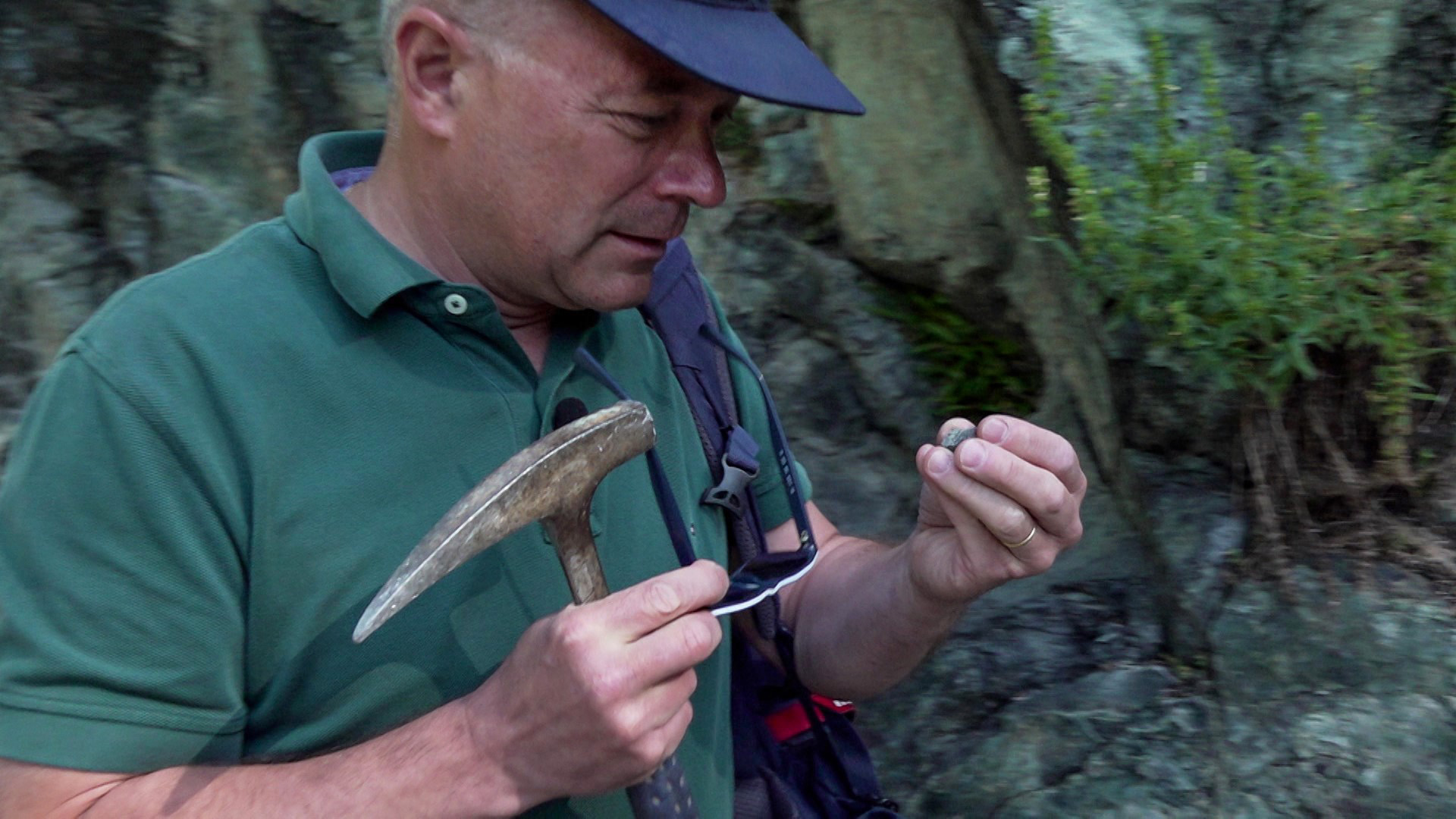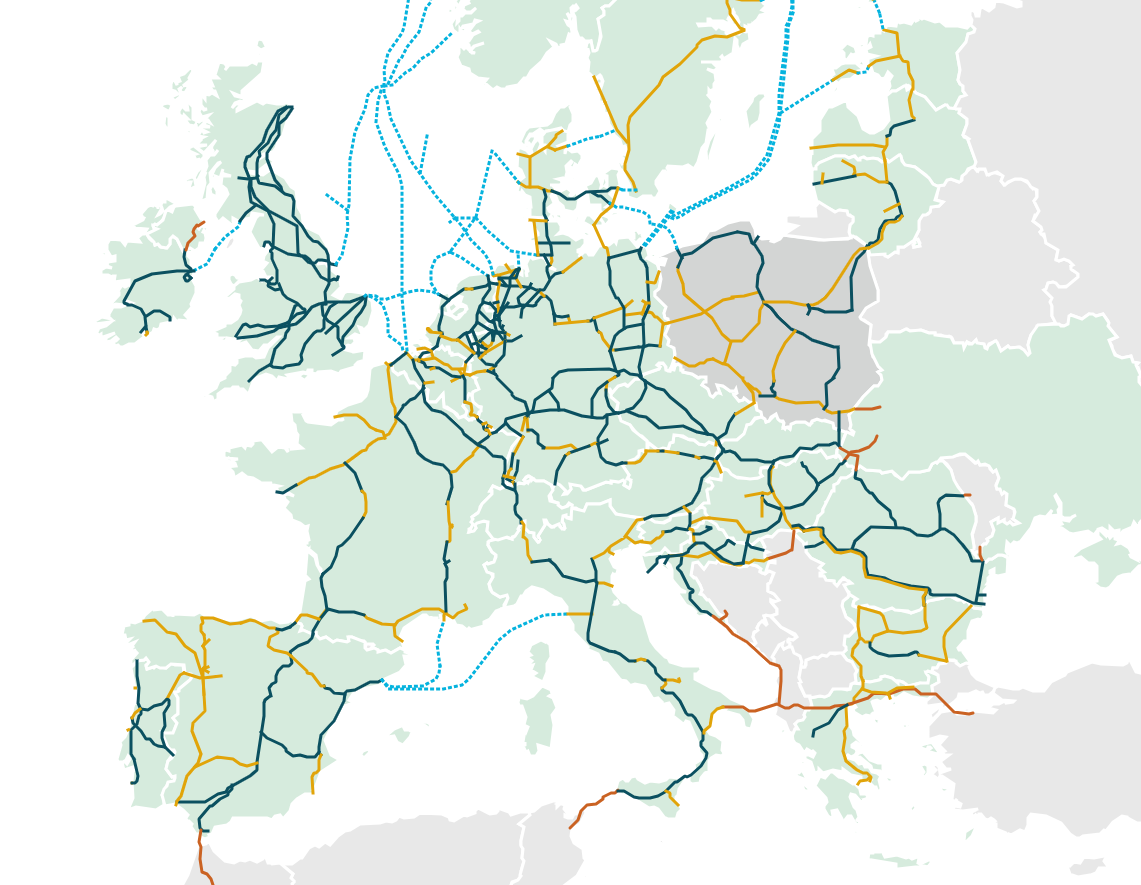
Once a hydrogen vehicle pioneer, Switzerland lags in the green fuel race

Swiss companies recognise the potential of green hydrogen and are pushing ahead with development. But without a government strategy, the Alpine state risks being left out of European plans to capitalise on this carbon-free fuel.
Green hydrogen is considered the “Swiss army knife of decarbonisation,” says Steven Schenk, a researcher at the Swiss Federal Institute of Technology in Lausanne. Hydrogen can produce, transport or store energy and is an environmentally friendly alternative to fossil fuels.
To produce a truly “green” gas, Schenk is tinkering with a technical solution. He’s developing an electrolyser, a device that can generate hydrogen from water using electricity in a cost-effective way.
It’s one of several Swiss hydrogen projects underway. The energy company Groupe E, for example, spoke of a “giant step in Switzerland’s energy transition” when it inaugurated a green hydrogen production site at its hydroelectric power plant in French-speaking Switzerland in October. It’s the fourth such production siteExternal link in the country.
Hydrogen is a zero-carbon fuel and can be used as a battery to store renewable energy. The challenge is to be able to extract it profitably from underground or to produce it from renewable sources, in large quantities and at an acceptable cost.
Hydrogen is also among the major themesExternal link at the United Nations climate change conference in Dubai (COP28) from November 20-December 12. This article is part of a series exploring the potential and limitations of hydrogen and the role of science and industry in the search for the green fuel of the future.
Other Swiss companies are pursuing their goals abroad. In Sweden, the Zurich-headquartered industrial manufacturer ABB is involved in one of Europe’s most ambitious renewable hydrogen projects. And rail manufacturer Stadler Rail has just signed a contract to supply hydrogen trains to the US state of California in addition to those planned for the Italian regions of Calabria and Sardinia.
But Switzerland itself risks missing the green hydrogen train.
Despite its innovative and enterprising spirit, the Alpine country does not have a national hydrogen strategy. It could also be excluded from Europe’s planned hydrogen corridors, as there is still no energy agreement between Bern and Brussels.

More
White hydrogen – Switzerland joins the scramble for ‘clean oil’
The ‘Swiss army knife’ of the energy transition
Hydrogen is the most abundant element in the universe and in its molecular form (H2), it can be used to produce a fuel that only emits water when burned. But the gas is not entirely emission-free – yet.
More than 90% of the hydrogen used in the world (about 100 million tons per year) is produced from fossil fuel sources, mainly methane and coal. This is called “grey” hydrogen because its production emits carbon.
Hydrogen is considered “green” when the electricity used to split the water molecule into hydrogen and oxygen comes from solar, wind or hydroelectric power. This process has long been extremely expensive.
“In recent years, the cost of green hydrogen has decreased and is now an order of magnitude considered acceptable. That’s why it’s being talked about everywhere,” Alessandra Motz, a researcher at the Public Finance and Energy Observatory at the University of Lugano in Switzerland, tells SWI swissinfo.ch.
The cost of producing green hydrogen in Europe is currently €3-8 External link(CHF2.89-4.82) per kilogramme, compared with €1-2/kg for hydrogen from fossil sources.
Green hydrogen is key to decarbonising sectors for which replacing coal or oil with renewable electricity would not provide enough power or heat, Motz explains. Examples are industrial steelmaking or long-distance travel. Hydrogen could also store and transport energy generated from renewable sources.

More
Swiss solutions for storing the energy of tomorrow
Switzerland is a hydrogen pioneer
Hydrogen was discovered more than two centuries ago, and its history also leads to Switzerland. Franco-Swiss inventor François Isaac de Rivaz conceived the first hydrogen-powered vehicleExternal link, a wooden cart equipped with an internal combustion engine first tested in 1813 in Vevey on the shores of Lake Geneva. A few years later, in 1838, Swiss chemist and physicist Christian Friedrich Schönbein published the principle of the fuel cell, now used to obtain electricity from hydrogen and oxygen.
More recently, the Swiss private sector established the country’s first green hydrogen supply chain. It is a consortium consisting of a production site, a network of refueling stations and a fleet of some 50 hydrogen trucks. Switzerland is among the European countries with the largest number of hydrogen refueling stationsExternal link (currently 15). Only Germany, France, the United Kingdom, and the Netherlands have more.
The green hydrogen race around the world
But Swiss politics are not keeping pace with industrial developments. Other countries are well ahead when it comes to developing a national green hydrogen strategy. After Japan became the first country to formulate such a strategy in 2017, the governments of China, India and the United States also announced detailed plans for multi-billion-dollar investments in the emerging industry.
The European Union and several of its member states are not far behind: the roadmapExternal link presented by Brussels in 2020 envisages a tenfold increase in the production of renewable hydrogen to 10 million tons by 2030. Germany and Italy have decided to allocate €9 billion and €3.6 billion, respectively, for hydrogen projects.
Switzerland is still undecided on where to source hydrogen
The Swiss government sees renewable hydrogen as an important building block in achieving its goal of net-zero emissions by 2050 but lacks a detailed vision on how to get there. It is unclear where the hydrogen will come from and in what quantities.
“It seems that Switzerland is simply standing by and watching while its EU neighbours act,” said the Conference of Cantonal Energy Directors in a statement issued in late August, calling on the Federal Council (executive branch) to act.
A recent analysisExternal link also highlights the need for a clear strategy. “We need to lay the groundwork in Switzerland now if we don’t want to miss the opportunities that hydrogen can offer for future energy supply,” argues Daniela Decurtins, director of the Swiss Gas Industry Association.
A national hydrogen strategy will be presented in the second half of 2024, the Swiss Federal Office of Energy (SFOE) tells SWI swissinfo.ch. It will look at framework conditions for introducing a hydrogen market in Switzerland, which could provide some certainty for investors and energy companies. The SFOE also wants to ensure the country’s connection to the planned European hydrogen network to import hydrogen from abroad.
A hydrogen network bypassing Switzerland?
Some 30 pipeline companies in the EU are considering the idea of implementing a hydrogen transport network on the continent by 2040. The European Hydrogen BackboneExternal link initiative is largely based on the existing natural gas infrastructure.
The corridors are expected to connect North Africa to Germany via Italy and Austria. That poses a risk of the supply network bypassing Switzerland, warns Matthias Sulzer, an energy expert and co-author of a studyExternal link on the federal government’s energy future.

Given the stalled negotiations on an institutional framework agreement between Switzerland and EU, a Swiss participation in the European hydrogen market is uncertain. Switzerland is already experiencing difficulties in the electricity sector, where no agreement with Brussels has been reached.
Switzerland is excluded from the EU internal energy market and “now risks missing the hydrogen train as well,” warns Motz. As we await developments and potential negotiations, she stresses, it is important to “keep our eyes open” to what is happening in the hydrogen world and continue to invest in research and innovation.

In compliance with the JTI standards
More: SWI swissinfo.ch certified by the Journalism Trust Initiative






























You can find an overview of ongoing debates with our journalists here . Please join us!
If you want to start a conversation about a topic raised in this article or want to report factual errors, email us at english@swissinfo.ch.